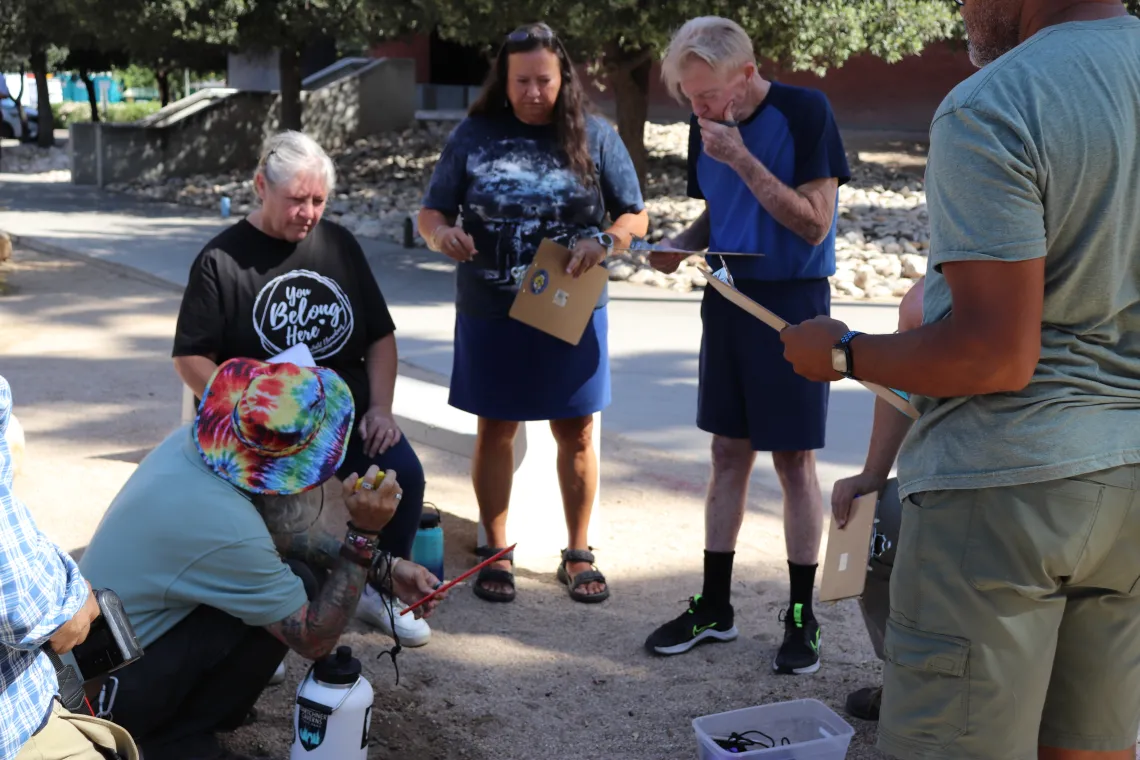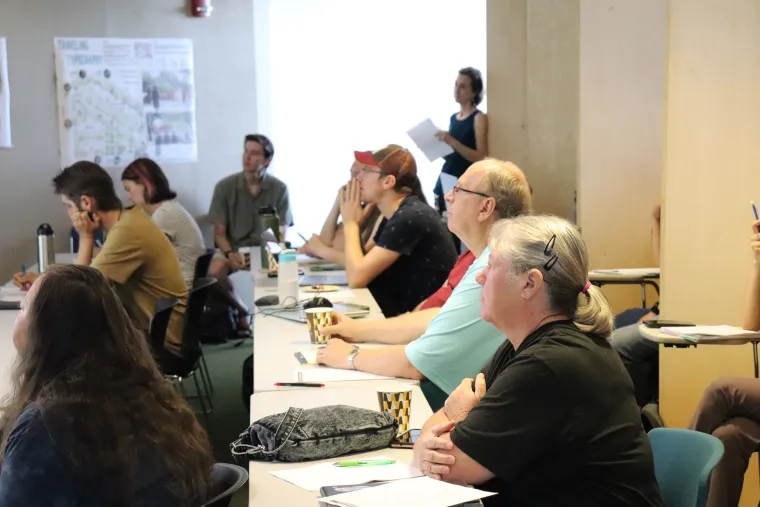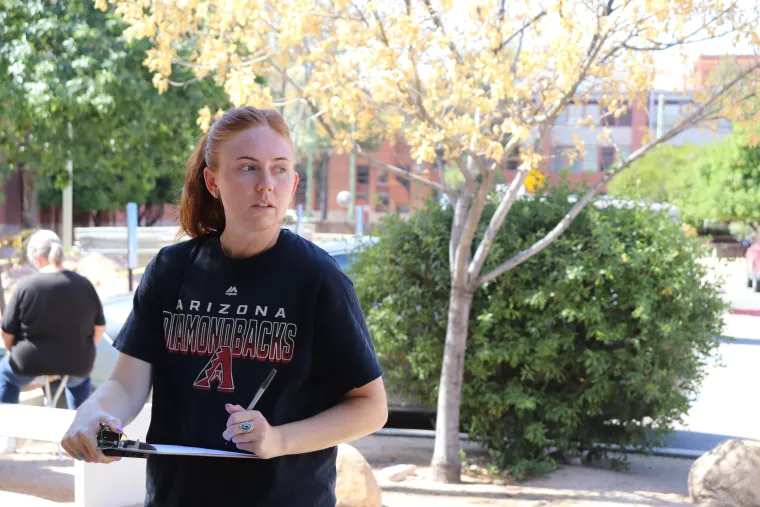K-12 Teacher Workshop at UArizona Invites Local Students to Participate in Major Research Project as Citizen Scientists
A partnership between the Southwest Urban Corridor Integrated Field Laboratory (SW-IFL) project and Arizona Project WET brought 14 local teachers to UArizona in an effort to help students learn while contributing to an important scientific study.

Arizona Project WET Program Coordinator Josh Ruddick demonstrates a percolator test, which measures water absorption rates, to a group of local teachers.
On almost any given day, a quick glance at the local news will tell you that Arizona’s growing urban megaregion is experiencing increased stress due to issues like extreme heat, atmospheric pollutants, and limited water, all of which promise to become more pressing over time as a result of continued growth and climate change.
Over the course of two days in late June 2023, 14 K-12 teachers from across Southern Arizona gathered at the UArizona College of Architecture, Planning & Landscape Architecture (CAPLA) to work with researchers from the Southwest Urban Corridor Integrated Field Laboratory (SW-IFL) and Arizona Project WET to develop curriculum that would enable local students to participate in hands-on climate research that would provide real data to SW-IFL scientists.
SW-IFL is a $25 million partnership between the three public universities in the state funded by the U.S. Department of Energy that aims to document the effects of climate change over the course of a five-year period in a region that stretches from the U.S.-Mexico border in the south and extending to the Navajo Nation in the northernmost reaches of the state.
Engaging the Next Generation of Leaders

Teachers listen intently as researchers from the SW-IFL Project and Arizona Project WET explain their climate-focused research objectives and processes.
Ladd Keith, CAPLA Assistant Professor of Planning and Sustainable Built Environments and Faculty Research Associate at the Udall Center for Studies in Public Policy, is co-principal investigator for the laboratory. He leads a team of nine researchers at UArizona responsible for $3.5 million of the project’s total budget.
Keith, whose research focuses on helping communities around the world develop resilient methods for mitigating and managing the negative consequences of increased extreme heat events, says that the workshop will not only help with SW-IFL data collection, but will also show students that they can have a real impact on science that is taking place in their community right now.
“We're hoping that this engagement with the teachers and their students will help improve the science we're doing…[while] also getting those students who are going to be future leaders in our state to better understand the environmental conditions that they're living in, the role that they can play to change those [conditions] and the role that they have to engage in the scientific process,” says Keith.
Students will have the opportunity to participate as citizen scientists by providing relevant data to the SW-IFL research efforts while also developing a deeper understanding of how a changing climate impacts them directly. For example, air quality sensors will be loaned to many of the participating schools, and teachers in attendance learned how to use this and other equipment to develop curricula that incorporate data collection into classroom activities. Using this equipment, students will have the opportunity to participate as citizen scientists by providing relevant data to the SW-IFL research efforts while also developing a deeper understanding of how a changing climate impacts them directly.
Developing Environmental Advocates, Building Community

Ironwood Ridge High School Environmental Science Teacher Emily Bartz hopes incorportating hands-on research into her lesson plans will help develop "good advocates for their environment."
Emily Bartz is a sixth-year science teacher at Ironwood Ridge High School in Oro Valley. This coming academic year will be her first teaching a class on environmental science to ninth-through-12th graders in the Amphitheater School District.
Bartz says she elected to attend the summer workshop in order to help engage her students in this new discipline of study. “Environmental science will be a new subject for me to teach, so I wanted to have some really good background knowledge on how to implement local things into the classroom,” says Bartz.
Her hope is that incorporating hands-on research into classroom activities will help students “[learn] how to be good advocates for their environment and be good community members.”
Bartz believes that including her students in an active research project will motivate them and help them better connect to the subject matter in her lessons. “I’m very motivated by the hands-on stuff,” she says, “I find it really cool so, especially for the kids, I think the [SW-IFL component] is just a really good application for them.”
Teachers were paid a small stipend for participating in this first iteration of the workshop, which Keith and his colleagues at SW-IFL and Arizona Project WET say will serve as a template for future teacher workshops at schools across Arizona that build on the knowledge generated at this initial event.
Teachers in attendance this year represented a mixed sampling of Tucson-area elementary schools, middle schools, and high schools with a special emphasis on schools in underserved areas of the city.

